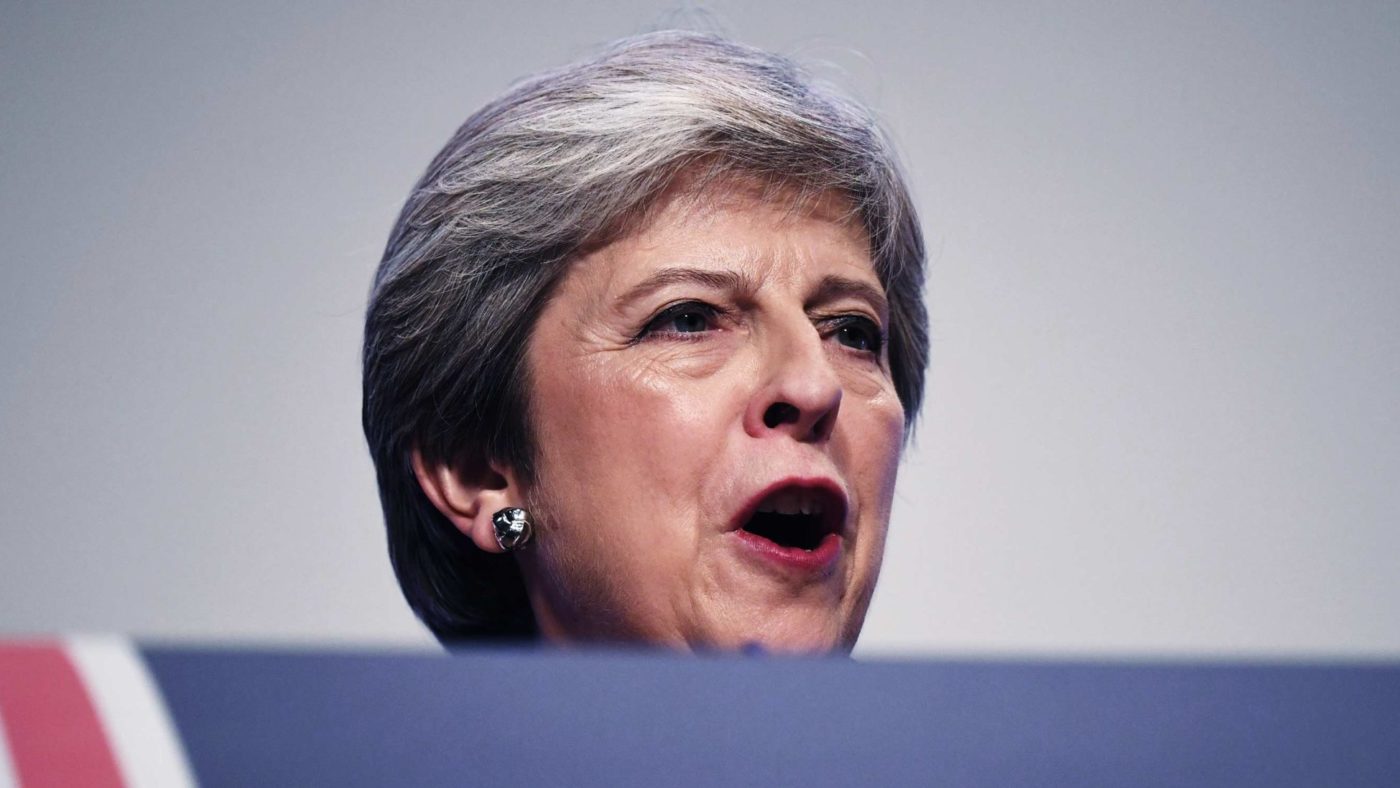The British Government is about to hit turbulence that will make the first nine months of what has been a bumpy year seem calm. With her speech yesterday to Conservative Party conference, Theresa May adopted the political equivalence of a brace position.
Mrs May made no promises to deliver the kind of transformative change she sought a mandate for in last year’s general election: a now-ritual fuel duty freeze, a new cancer strategy and a lift on the cap on council borrowing to build homes made up the short list of concrete offerings. Instead, her offer was responsible leadership at what she described as a “pivotal moment” for Britain.
Britain will have left the European Union in fewer than 200 days. In under two weeks, Mrs May faces another showdown with European leaders at the next Council summit. Answers to intractable seeming problems like the Irish border issue need to be found quickly. Agreement with European leaders determined to see Brexit fail needs to be reached. And, after all that, the Government and its Whips need to somehow find a way to get the final deal through Parliament.
Success in these crucial few months depends on being seen as the only adult in the room. There are no enthusiastic supporters for the Chequers proposal. (The C-word was notably absent from yesterday’s speech.) But Mrs May dismissed the other Brexit camps’ motives effectively and defined her pragmatism – if not the details of particular proposal – as the responsible choice.
“We have a Labour Party that, if they were in Government, would accept any deal the EU chose to offer, regardless of how bad it is for the EU,” she said of the Opposition. “But who also say they’ll oppose any deal I choose to bring back, regardless of how good it is for the UK.”
Of those agitating for a second referendum, she said to extended applause: “We had a people’s vote. The people chose to leave. A second referendum would be a ‘politicians vote’: politicians telling people they got it wrong first time and should try again.”
To the many in her own party unhappy with the version of Brexit on offer, she warned: “If we all go off in different directions in pursuit of our own visions of the perfect Brexit – we risk ending up with no Brexit at all… We are entering the toughest phase of the negotiations. You saw in Salzburg that I am standing up for Britain. What we are proposing is very challenging for the EU. But if we stick together and hold our nerve I know we can get a deal that delivers for Britain.”
To the those on the other side of the negotiating table, she repeated her warning that “we will not betray the result of the referendum. And we will never break up our country.”
“I have treated the EU with nothing respect,” she reiterated. “The UK expects the same.”
Mrs May will be hoping that by reminding her party, and the country, of the difficult position she finds herself in, and of her determination to see the job through, she has earned enough political capital to ride out the Brexit end game. A focus on leadership, duty and unity was really the only option for a Prime Minister who is operating without a majority and who knows that her darkest days in Downing Street are very probably just around the corner.
Yesterday’s speech will quickly recede in the rear-view mirror as the coming drama unfolds. But, at the very least, the Prime Minister’s conference speech has given her a template to work with in the next few months.
Faced with another “Non” from Michel Barnier or Emmanuel Macron, or an unhelpful question from a disobliging blond on her own benches, she has the vocabulary with which to fight back. Compromise, she will be able to argue as she did yesterday, isn’t the worst of both worlds. It’s the only grown-up option.
In that sense, the May premiership has come full circle. The core values of yesterday’s speech have always been the essence of Prime Minister Theresa May: duty, public service, pragmatism. Announcing her leadership bid in the aftermath of the EU referendum, Mrs May contrasted her rivals’ approach to politics with her own: “I don’t gossip about people over lunch. I don’t go drinking in parliament’s bars. I don’t often wear my heart on my sleeve. I just get on with the job in front of me.”
A lot has changed in the intervening two years, but when it comes to what her country and her party see the Prime Minister’s job as being, we are back where we started. Then, it seemed likely then that prosecuting Brexit would be the all-consuming job of the May government. And that, as Mrs May more or less admitted yesterday, has turned out to be true.


